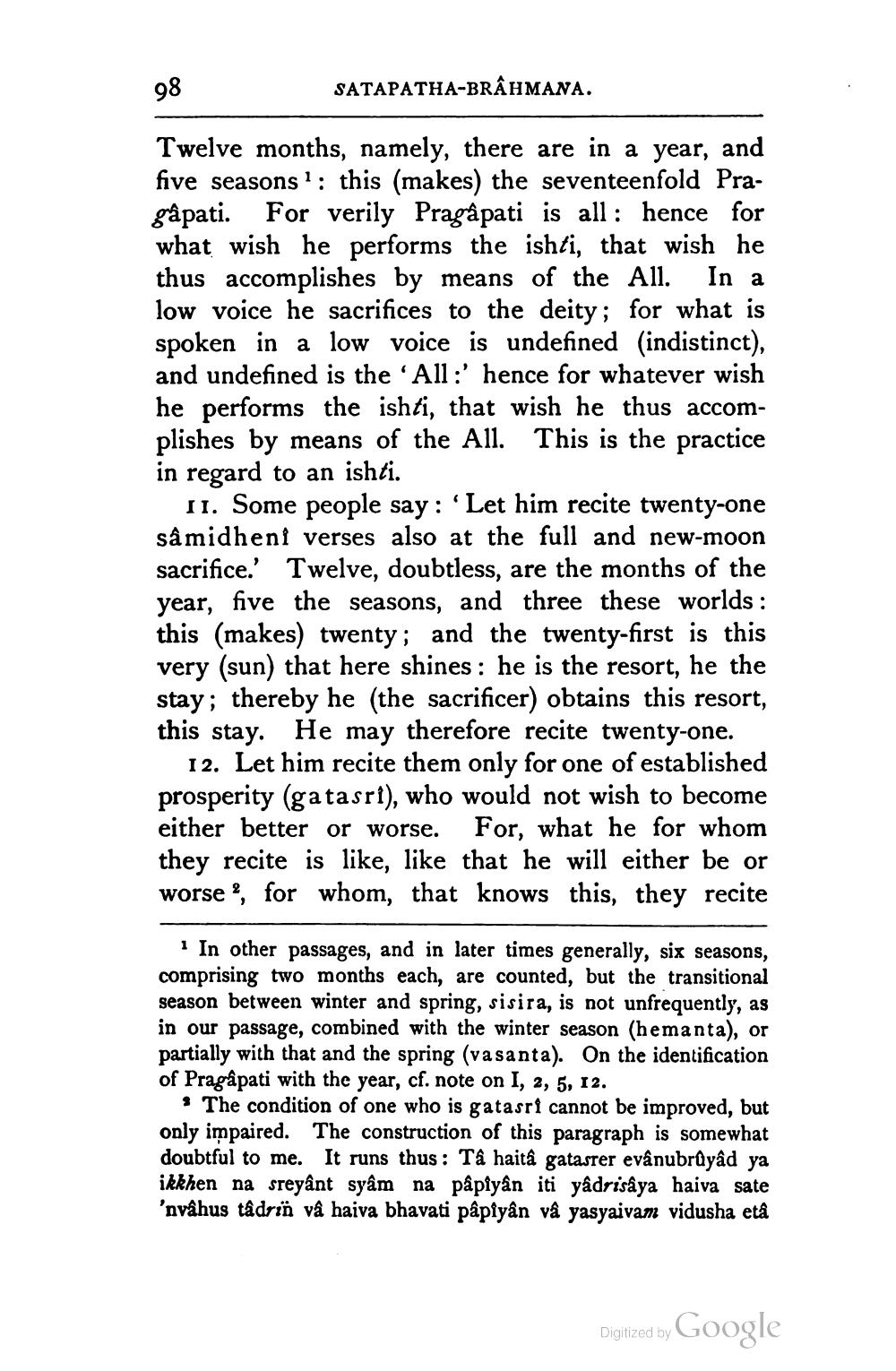________________
SATAPATHA-BRAHMANA.
98
Twelve months, namely, there are in a year, and five seasons: this (makes) the seventeenfold Pragâpati. For verily Pragâpati is all: hence for what wish he performs the ishti, that wish he thus accomplishes by means of the All. In a low voice he sacrifices to the deity; for what is spoken in a low voice is undefined (indistinct), and undefined is the 'All:' hence for whatever wish he performs the ishti, that wish he thus accomplishes by means of the All. This is the practice in regard to an ishti.
11. Some people say: 'Let him recite twenty-one sâmidhent verses also at the full and new-moon sacrifice.' Twelve, doubtless, are the months of the year, five the seasons, and three these worlds: this (makes) twenty; and the twenty-first is this very (sun) that here shines: he is the resort, he the stay; thereby he (the sacrificer) obtains this resort, this stay. He may therefore recite twenty-one.
12. Let him recite them only for one of established prosperity (gatasri), who would not wish to become either better or worse. For, what he for whom they recite is like, like that he will either be or worse, for whom, that knows this, they recite
1 In other passages, and in later times generally, six seasons, comprising two months each, are counted, but the transitional season between winter and spring, sisira, is not unfrequently, as in our passage, combined with the winter season (hemanta), or partially with that and the spring (vasanta). On the identification of Pragâpati with the year, cf. note on I, 2, 5, 12.
The condition of one who is gatasri cannot be improved, but only impaired. The construction of this paragraph is somewhat doubtful to me. It runs thus: Tâ haitâ gatasrer evânubrûyâd ya ikkhen na sreyânt syâm na pâpîyân iti yâdrisâya haiva sate 'nvâhus tâdrin vâ haiva bhavati pâpîyân vâ yasyaivam vidusha etâ
Digitized by Google




